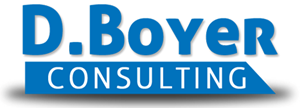Business is mostly conducted via email or phone communications.
Office hours 10:00 a.m. to 6:00 p.m, Mon. - Thurs., and 10:00 a.m. to 2:00 p.m. on Fridays.
SEND EMAIL INQUIRIES DIRECTLY TO:
Dawn.Boyer@me.com
Business is mostly conducted via email or phone communications.
Office hours 10:00 a.m. to 6:00 p.m, Mon. - Thurs., and 10:00 a.m. to 2:00 p.m. on Fridays.
SEND EMAIL INQUIRIES DIRECTLY TO:
Dawn.Boyer@me.com
Business is mostly conducted via email or phone communications.
Office hours 10:00 a.m. to 6:00 p.m, Mon. - Thurs., and 10:00 a.m. to 2:00 p.m. on Fridays.
SEND EMAIL INQUIRIES DIRECTLY TO:
Dawn.Boyer@me.com
In a Hot Job Market, Forget A.I. – Get in the S.H.A.D.E.
June 18th, 2024 by Dawn Boyer
In the week ending June 8, 2024, seasonally adjusted initial unemployment claims for benefits were ~242,000, an increase of 13,000 from the previous week of 229,000 (according to the USDOL). Going into the hot summer months, it will get harder for job seekers to find work. Job seekers need every advantage to get noticed by hiring managers. With more applicants per position, employers can be picky.
Interestingly, the ‘hot trend’ of using Artificial Intelligence (AI) to write resumes seems to be picking up steam. Unfortunately, using AI may hurt versus help job seekers. Over the last year, I have noticed AI-generated resumes focusing on ‘high-dollar words,’ glorified and subjective descriptions, and trendy buzzwords, and unfortunately, do NOT explain what the job seeker physically did nor achievements for current or past employers.
Job seekers are paying third-party platforms to create resumes for them. These resumes look and sound impressive on the first read. After the initial glance, recruiters may have difficulty deciphering the ‘fancy language’ used by the AI generator. There is a term used by computer programmers – GIGO (Garbage In, Garbage Out). Artificial Intelligence gathers thousands of resume samples from the web to learn. Still, AI cannot discern the difference between a poorly written resume and a keyword-packed, metric-rich resume that recruiters seek. So everything gets lumped together – the garbage and the gold.
Increasingly, recruiters are using programs to weed out AI resumes and auto-reject those applicants. AI-generated documents have an almost recognizable style and tone, and the ‘anti-AI’ software is trained to identify and reject those. Recruiters want to see a human-written resume.
Job seekers must show why hiring them will increase the employer’s revenue, reduce overhead expenses, and answer why this job seeker is the best hire?’ against job-seeker competitors. When writing a resume, there are specific elements hiring managers want to see in a resume:
Skill Capabilities
Hard (vs Soft) Skills
Achievements & Accomplishments
Diversity (broad job skills)
Education & Training
The worst thing job seekers can do is copy and paste the job description announcement from a public job notice. Adding AI-generated job descriptions is a second worse scenario. The best resumes have unique language that describes specific Skills (capabilities). The resume needs to list job-related Hard skills or unique technologies used in current or past jobs. (The job seeker can showcase their soft skills [personality, speaking capabilities] during the interview.)
The resume job descriptions should showcase Achievements and accomplishments and the monetary or positive organizational results. What sales revenues resulted? How many manufacturing units were completed in a record time?
The job seeker should include a Diversity of tasks and responsibilities (not only performing their job but backup co-workers’ responsibilities). What cross-training tasking can the job seeker perform? Does the job seeker have a broad range of skills (e.g., accounting, budgeting, sales, presentations) from previous jobs they can perform? Did they supervise others?
Education and training demonstrate knowledge of a specific industry and experience in training others. What computer skills are the job seeker bringing to the table? How many certifications do the job seeker have in the industry or field?
Job seekers should showcase how they have been ‘leaders’ – team lead, supervisor, or oversight to coworkers. What projects did they volunteer for, or did they lead others in accomplishing company strategic goals? How successful were the project achievements in metrics (e.g., sales increases of $XXX; reduction of XX man-hours)?
The resume should be a richly-worded document of ‘what the job seeker has done’ and ‘capabilities’ for hiring consideration. A vague or poorly written resume can easily be ignored (or marked as insufficient experience in the ATS software platform).
The goal is to get enough rich ‘teaser’ information into the resume that the hiring manager wants to call the applicant in for an interview to find out more. Artificial Intelligence programs have not yet reached the pinnacle of compiling information into a practical document. If the job seeker focuses on the S.H.A.D.E. in writing their resume, they will increase their success of catching the eye of recruiters.
Dawn Boyer, Ph.D., owner of D. Boyer Consulting – provides resume writing, editing, publishing, and print-on-demand consulting. Reach her at Dawn.Boyer@me.com or visit her website at www.dboyerconsulting.com.
Readers Comments
In a Hot Job Market, Forget A.I. – Get in the S.H.A.D.E.
June 18th, 2024 by Dawn Boyer
In the week ending June 8, 2024, seasonally adjusted initial unemployment claims for benefits were ~242,000, an increase of 13,000 from the previous week of 229,000 (according to the USDOL). Going into the hot summer months, it will get harder for job seekers to find work. Job seekers need every advantage to get noticed by hiring managers. With more applicants per position, employers can be picky.
Interestingly, the ‘hot trend’ of using Artificial Intelligence (AI) to write resumes seems to be picking up steam. Unfortunately, using AI may hurt versus help job seekers. Over the last year, I have noticed AI-generated resumes focusing on ‘high-dollar words,’ glorified and subjective descriptions, and trendy buzzwords, and unfortunately, do NOT explain what the job seeker physically did nor achievements for current or past employers.
Job seekers are paying third-party platforms to create resumes for them. These resumes look and sound impressive on the first read. After the initial glance, recruiters may have difficulty deciphering the ‘fancy language’ used by the AI generator. There is a term used by computer programmers – GIGO (Garbage In, Garbage Out). Artificial Intelligence gathers thousands of resume samples from the web to learn. Still, AI cannot discern the difference between a poorly written resume and a keyword-packed, metric-rich resume that recruiters seek. So everything gets lumped together – the garbage and the gold.
Increasingly, recruiters are using programs to weed out AI resumes and auto-reject those applicants. AI-generated documents have an almost recognizable style and tone, and the ‘anti-AI’ software is trained to identify and reject those. Recruiters want to see a human-written resume.
Job seekers must show why hiring them will increase the employer’s revenue, reduce overhead expenses, and answer why this job seeker is the best hire?’ against job-seeker competitors. When writing a resume, there are specific elements hiring managers want to see in a resume:
Skill Capabilities
Hard (vs Soft) Skills
Achievements & Accomplishments
Diversity (broad job skills)
Education & Training
The worst thing job seekers can do is copy and paste the job description announcement from a public job notice. Adding AI-generated job descriptions is a second worse scenario. The best resumes have unique language that describes specific Skills (capabilities). The resume needs to list job-related Hard skills or unique technologies used in current or past jobs. (The job seeker can showcase their soft skills [personality, speaking capabilities] during the interview.)
The resume job descriptions should showcase Achievements and accomplishments and the monetary or positive organizational results. What sales revenues resulted? How many manufacturing units were completed in a record time?
The job seeker should include a Diversity of tasks and responsibilities (not only performing their job but backup co-workers’ responsibilities). What cross-training tasking can the job seeker perform? Does the job seeker have a broad range of skills (e.g., accounting, budgeting, sales, presentations) from previous jobs they can perform? Did they supervise others?
Education and training demonstrate knowledge of a specific industry and experience in training others. What computer skills are the job seeker bringing to the table? How many certifications do the job seeker have in the industry or field?
Job seekers should showcase how they have been ‘leaders’ – team lead, supervisor, or oversight to coworkers. What projects did they volunteer for, or did they lead others in accomplishing company strategic goals? How successful were the project achievements in metrics (e.g., sales increases of $XXX; reduction of XX man-hours)?
The resume should be a richly-worded document of ‘what the job seeker has done’ and ‘capabilities’ for hiring consideration. A vague or poorly written resume can easily be ignored (or marked as insufficient experience in the ATS software platform).
The goal is to get enough rich ‘teaser’ information into the resume that the hiring manager wants to call the applicant in for an interview to find out more. Artificial Intelligence programs have not yet reached the pinnacle of compiling information into a practical document. If the job seeker focuses on the S.H.A.D.E. in writing their resume, they will increase their success of catching the eye of recruiters.
Dawn Boyer, Ph.D., owner of D. Boyer Consulting – provides resume writing, editing, publishing, and print-on-demand consulting. Reach her at Dawn.Boyer@me.com or visit her website at www.dboyerconsulting.com.













